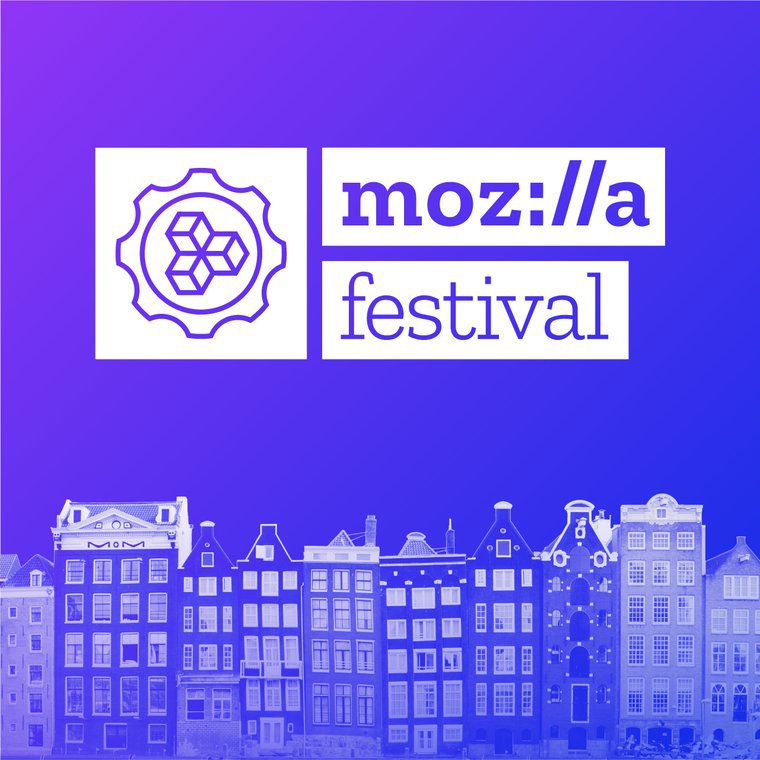Mozilla Festival 2022 was an incredible experience. The first half of the week brought our community together in exciting ways. The second half of the week hosted social moments that took us by storm and inspired us in ways we didn’t expect. But the final day really took our breath away. From the newly imagined Science Fair, to a unique Zine Exhibition, to a Studio-style closing circle, here are the highlights from Friday’s Mozilla Festival LIVE.
If you missed the live event, great news! This year, MozFest is offering on-demand tickets to access recorded sessions and live Fringe Events through June 25.

The MozFest Science Fair in Mozilla Hubs is an experimental and interactive imagining of The Parable of the Sower, where the powerful narrative by Olivia E. Butler comes to life.
Parable of the Sower tells the story of change, of seeding new worlds and developing systems to mitigate the loss of freedom people face when technology, policy, and economies are consolidated and weaponized. Artists, creators, and readers all over the world reference Butler’s work as a way to make sense of present technologies, and as a map to imagine a future world. It has become an activist’s tool to organize, educate, collaborate, and envision new ways to build technologies.
Toshi Reagon and Alexis Pauline Gumbs kicked off the Science Fair with a live, interactive performance and conversation about the narrative. Then, participants were encouraged to levitate with their avatars into an immersive sonic and visual exploration of the text through various virtual galleries. Live Science Fair demos of projects that celebrate themes of sustainability, decolonization, planting seeds, and emergence were staged throughout the experience.
On-demand ticket holders can peruse the virtual Science Fair galleries and booths at their leisure through June 25.
Zine Fair & Exhibition

On Friday, MozFest hosted its first-ever Zine Fair. Zines are DIY publications, made for trading and sharing, a visual medium that allows for expression beyond the bounds of language-- a perfect match for MozFest’s open-source ethos and global audience. In a vaporwave-inspired Spatial Chat environment (complete with DJ/VJmix of 1980s electronic music and low-res visuals), over 20 zines were shared, on topics as diverse as DNA testing and databases, why Wikipedia matters, and coding intersectional AI. Zine-makers and enthusiasts from around the world gathered to chat, network, and share their amazing work. While the Fair in Spatial chat is over, you can browse the collection of zines from the Fair on the MozFest Plaza.
Closing Circle
The Closing Circle is a MozFest tradition that has not been lost in our new virtual world. This special time at the end of the festival is a celebration and review of what has happened during the festival, and allows the entire community to look ahead to the upcoming year and see where this work can take us.
This year’s Closing Circle took place in the MozFest Studio, hosted by Festival Director Sarah Allen and Studio Host Dzifa Kusenuh. They were joined by MozFest Executive Producer J. Bob Alotta, MozFest Communications Manager Kristina Gorr, MozFest Facilitator Tara David, and Attendee Thomas Salmon to share their experiences, reflections, and what’s next for the community.
Sessions
You can watch these incredible sessions on-demand with an on-demand ticket!
African Women in Artificial Intelligence Project
The African Women in Artificial Intelligence Project session discussed Pollicy’s African Women in Artificial Intelligence Project (AWiAIP) which launched in October 2021 to spark conversation about Artificial Intelligence and Gender Equality in Africa.
Today, conversations about the significance of Artificial Intelligence have expanded from a narrow focus on its importance to the economy to the potentially negative impact of the technology on social justice and equality.
In Africa, a major aspect of the conversation involves the exclusion of women in the development of the AI and the resulting impact on the lives of African women. The absence of alternative voices in the AI industry dominated by white men, also speaks to the problem of exclusion and the deprioritisation of the needs of African women. The absence of proximity means that products and services being created through Artificial Intelligence do not centre the (pressing) needs of African women, since they are not represented in the decision making spaces.
DIY Mycology for an adaptive future

Have you ever considered how hi- and lo-tech applied mycology might help us adapt to a changed climate and build toward a sustainable future? DIY Mycology for an adaptive future was an incredible session that walked participants through:
- what are fungi & what is mycology
- a brief history of DIY mycology
- P2P forums catering to DIY myco communities
- a brief explanation of classical mycology (taxonomy) vs. applied mycology.
Through the recording, you can learn how terms like “applied” and “DIY” can also be understood as universal modes of engagement w/ the natural world, before and outside of modern science, as trial-and-error experimentalism & local knowledge. Many uses for fungi are likely undocumented, or have been lost or overtaken by modern medicine and science.
Education in a Mixed AI Reality: A Dialogues & Debates Panel
Upcoming generations are growing up in a mixed reality where they develop a powerful command on internet platforms. Tik Tok is a great manifestation of the nuances of existence through short, catchy, layered video content. Gaming is another space where the rules of the real world are interwoven by those of the game. What is then the role of education in this cross-existence: how do these interactions shape young folks in their interactions and interrogations of technology?
Is AI holding up a Broken Mirror? SWANA and the fragmentation of AI Ambitions

The session, “Is AI holding up a Broken Mirror? SWANA and the fragmentation of AI Ambitions” discussed the many things we actively exclude from our identity to acclimate to prominent power structures, a phenomenon also known as “code-switching”. This exclusion also transpires to our psyche, relationships to the world and power, but also in how we design, consume, and propagate tech. While we can be aware of how intersectional our identities are and play on different recipes of our personas based on context, set and setting, online we lose the "redemption" of IRL.
We make sticky decisions that then become the water we swim in. AI homogenized us further, because it is easier for ML and categorization, (epistemology of data science) AI focuses a fragmented lens on our personhood and identities, which does not live up to its potential in becoming an overarching layer animating our lives. For AI to live up to any of its ambitions it needs to integrate the so called minorities, such as SWANA women.
Experience MozFest On Demand Today!
Did you miss the live event? For the first time ever, you can secure an on-demand ticket to MozFest! Secure your ticket today to access recorded sessions and live Fringe Events until June 25.
MozFest is part art, tech and society convening, part maker festival, and the premiere gathering for activists in diverse global movements fighting for a more humane digital world. To learn more, visit www.mozillafestival.org.
Sign up for the MozFest newsletter here to stay up to date on the latest festival and internet health movement news.






